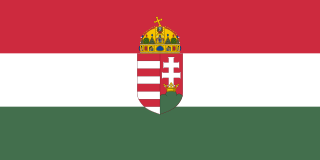
At the 1896 Summer Olympics, one wrestling event was contested. It was organized and prepared by the Sub-Committee for Wrestling and Gymnastics. Five competitors from four nations competed.
At the 1896 Summer Olympics, four swimming events were contested, all for men. They were planned and organized by the Sub-Committee for Nautical Sports. All events took place on 11 April in the Bay of Zea. There was a total of 13 participants from 4 countries competing.

Three sportsmen from Austria competed at the 1896 Summer Olympics. Though Austria was then a part of Austria-Hungary, most sources separate Austrian competitors from the Hungarians at the 1896 Games.

France competed at the 1896 Summer Olympics in Athens, Greece, from 6 to 15 April 1896. French athletes had appeared in every Summer Olympic Games of the modern era, alongside Australia, Great Britain, and Greece. France won the fourth-most gold medals with 5 and the fourth-most total medals with 11. Cycling was the sport in which the French competitors had the most success, as they completely dominated the field. The French team had 27 entries in 18 events, winning 11 medals.

Germany competed at the 1896 Summer Olympics in Athens, Greece. The Germans were the third most successful nation in terms of both gold medals and total medals (13). Gymnastics was the sport in which Germany excelled. The German team had 19 athletes. The Germans had 75 entries in 26 events, taking 13 medals.

Hungary competed at the 1896 Summer Olympics in Athens, Greece. Austrian and Hungarian results at early Olympic Games are generally kept separate despite the union of the two nations as Austria-Hungary at the time.

One competitor from Sweden was present at the 1896 Summer Olympics. He competed in athletics and gymnastics, with 5 entries in as many events. Sweden was one of four nations present that won no medals; Italy, Chile and Bulgaria were the others.
Nikolaos Katravas was a Greek swimmer. He competed at the 1896 Summer Olympics in Athens. Katravas competed in the 1,200 metres freestyle event. His time and place in the competition are unknown, though he did not finish in the top three.

The first heat of the men's 100 metres race was the first event run at the modern Olympics, on 6 April 1896. The event consisted of 3 heats and a final, held on 10 April. The 100 metres was the shortest race on the Athletics at the 1896 Summer Olympics programme. 15 athletes from 8 nations competed. The event was won by Thomas Burke of the United States. Fritz Hofmann of Germany took second, with Hungarian Alajos Szokolyi and American Francis Lane tying for third. These competitors are recognized as gold, silver, and bronze medalists by the International Olympic Committee, though that award system had not yet been implemented in 1896.

The men's 400 metres race was the second-shortest of the flat-track events on the Athletics at the 1896 Summer Olympics programme. The competition's preliminary round was the last held on the first day, 6 April. The competitors were split into two groups. The top two runners in each heat advanced to the final, which was held on the second day, 7 April.
The men's 1500 metres race, the longest flat-track race of the 1896 Summer Olympics programme, was the last event on 7 April. It was run in a single heat, with eight athletes competing.

The men's triple jump was one of four jumping events on the Athletics at the 1896 Summer Olympics programme. There were 7 competitors from 5 nations in the triple jump, then known as the "hop, skip, and jump" despite the wide range of techniques used by the competitors. The event was held on 6 April, immediately after the first heats of the 100 metre race. Since there was only one round of the triple jump, the winner was crowned as the first modern Olympic champion.

The men's sprint was one of the five track cycling events on the Cycling at the 1896 Summer Olympics programme. It was held on 11 April as the second event on the schedule. It was held over the distance of 2 kilometres, or six laps of the track. The event was won by Paul Masson of France, with his teammate Léon Flameng earning bronze. Stamatios Nikolopoulos of Greece took silver

The men's 10 kilometres was one of the five track cycling races on the Cycling at the 1896 Summer Olympics programme. It was held on 11 April and comprised 30 laps of the track. The 1896 Games was the only time that the 10 kilometres track race was part of the cycling program at an Olympic Games. Six cyclists from four nations competed. The event was won by Paul Masson of France, the second of his three victories that day. His countryman Léon Flameng finished second, while Austrian Adolf Schmal was third.

The men's pommel horse was one of eight gymnastics events on the Gymnastics at the 1896 Summer Olympics programme. The pommel horse was the fourth event held on 9 April. 15 athletes from five nations started the pommel horse exercise. Zutter won Switzerland's first gold medal in this event, with Weingärtner taking the silver.

The men's team parallel bars was the first of eight gymnastics events on the Gymnastics at the 1896 Summer Olympics programme. It was held on 9 April. Three teams took part, one German and two Greek, with the German team winning the competition.

The men's 25 metre military pistol was one of the five sport shooting events on the 1896 Summer Olympics shooting programme. 16 competitors from four nations entered the military pistol match, held on 10 April. Each shot thirty rounds in five strings of six at a target 25 metres away. The winner, John Paine of the United States, hit the target 25 times. His brother, Sumner Paine, hit the target 23 times. They used American-made military Colt revolvers.

The men's 100 metre freestyle was one of the four swimming events on the Swimming at the 1896 Summer Olympics programme. The 100 metre freestyle race was the first of the swimming events. Ten swimmers entered the race. The two competitors from Austria-Hungary finished in the top two places, though no record distinguishes the places of the other eight competitors. Alfréd Hajós of Hungary beat Otto Herschmann of Austria by about half a metre, with the other swimmers far behind. The Hungarian flag was hoisted, but the band began to play the Austrian anthem until the Hungarian sang the Hungarian anthem (Himnusz).

The men's 500 metre freestyle was one of the four swimming events on the Swimming at the 1896 Summer Olympics programme.

The men's 1200 metre freestyle was one of the four swimming events on the Swimming at the 1896 Summer Olympics programme.















